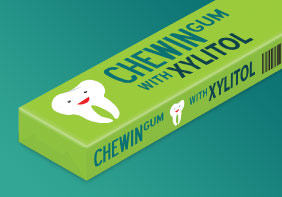Artificial Sweeteners
Satisfying and Protecting Your Sweet Tooth
(Continued)
Rebaudioside A is the most recently FDA approved artificial sweetener, and is a highly purified compound originally found in Stevia plants and now produced synthetically. Stevia, previously available as a dietary supplement, is an intensely sweet tropical plant and has often been marketed as a natural alternative to artificial sweeteners. Besides being sold as dried or pure Stevia plant, Stevia-derived sweetener is sold under the names PureVia, Truvia, Sun Crystals, and Stevia in the Raw.
In addition to true artificial sweeteners which have zero calories, low-calorie sweeteners also exist that provide sweetness with fewer calories than sugar. Also called sugar alcohols or polyols, these are naturally occurring substances often used in place of sugar or in combination with an artificial sweetener. Truvia, for instance, is a combination of Stevia extract and a sugar alcohol called erythritol. Sugar alcohols are absorbed slowly by the body and incompletely digested, so the body receives less calories compared to sugar. Examples of sugar alcohols commonly found in the US food supply are sorbitol, mannitol, xylitol, erythritol, and d-tagatose. Recently, extra attention has been paid to the sugar alcohol xylitol because it can be used to prevent tooth decay.
The Sweet Side: Health Benefits of Sweeteners
The FDA has determined that there is significant scientific agreement regarding safety of the six artificial sweeteners listed above and has therefore granted its approval for their use. Additionally, the American Dietetic Association has stated that “It is [our] position that consumers can safely enjoy a range of nutritive and non-nutritive sweeteners” and has approved the use of artificial sweeteners in the general public, including people with diabetes, pregnant women, and children.
Among the major benefits of artificial sweeteners is their impact on dental health. Artificial sweeteners can help reduce intake of sugar, and unlike regular sugar, sucrose, they do not promote growth of the bacteria that cause cavities. Rather than eliminating sweet items entirely from the diet — which may be unrealistic and unsustainable for a variety of reasons — individuals can substitute sugar-free versions of desired foods. Both sugar alcohols and artificial sweeteners have been used to sweeten chewing gums, hard candies and beverages. Currently, the American Dental Association awards the ADA Seal to a variety of chewing gums containing artificial sweeteners and/or sugar alcohols. Gums sweetened with artificial sweeteners or sugar alcohols benefit oral health by stimulating the flow of saliva, which has many beneficial properties. Saliva buffers acidity in the mouth and in bacterial plaque. Saliva also returns necessary minerals (such as calcium and phosphate) to the tooth surface, which acid dissolves out.
 |
| Xylitol chewing gum not only promotes saliva flow and its many benefits, but it also has been shown to impede the bacteria that cause tooth decay thereby reducing decay rates. |
As mentioned before, current research suggests that sugar alcohols may play a greater role in prevention of dental caries than previously thought. Xylitol use in the form of chewing gum has been shown to significantly reduce levels of Streptococcus mutans bacteria, the major decay-causing bacteria within the mouth. These bacteria are unable to ferment the sugar alcohol, resulting in bacterial starvation.
Artificial sweeteners and low-calorie sugar alcohols can also play an important role in overall health promotion. Although often thought of as a tool for dieters to use in their quest to reduce caloric intake, or a way for people with diabetes to avoid spikes in blood glucose, these products can be used not just as a temporary substitution for high-calorie sweeteners, but also as a way to promote more lasting lifestyle changes. Artificial sweeteners can be an option for gradually reducing intake of added sugars. For instance, a consumer may not be willing to give up a three-soda daily habit, but might be open to the idea of switching to diet versions. By satisfying a desire for sweet taste, individuals feel less restricted and deprived, which can be a starting point for building long-term healthy habits.



